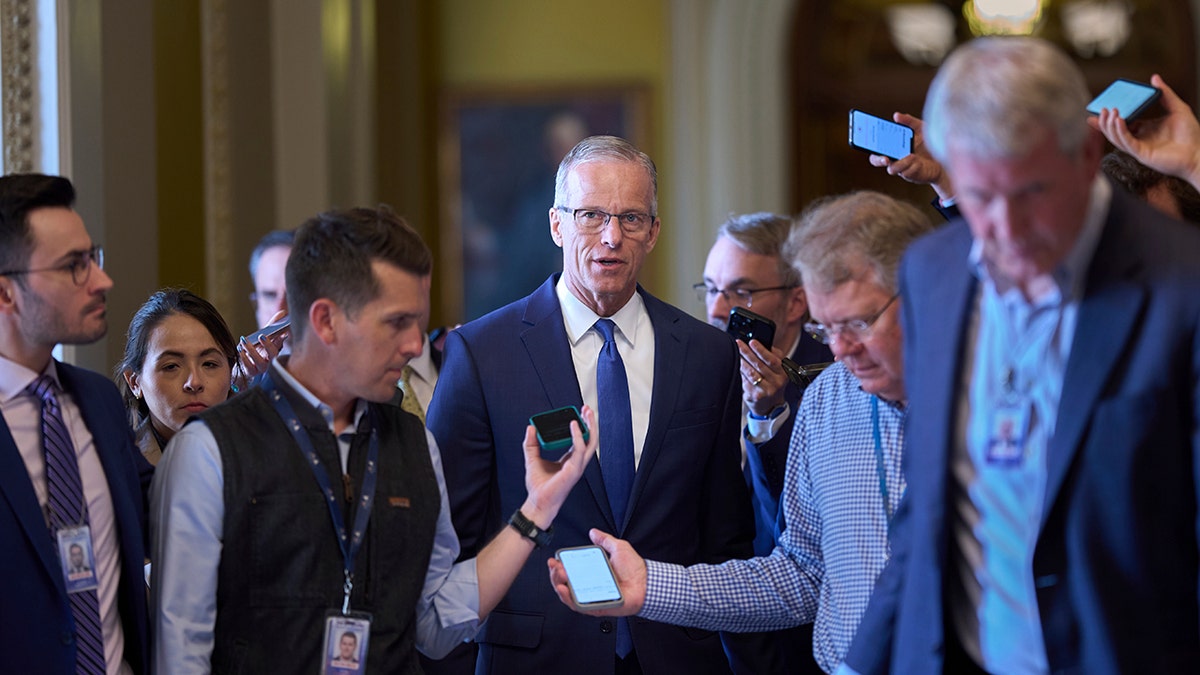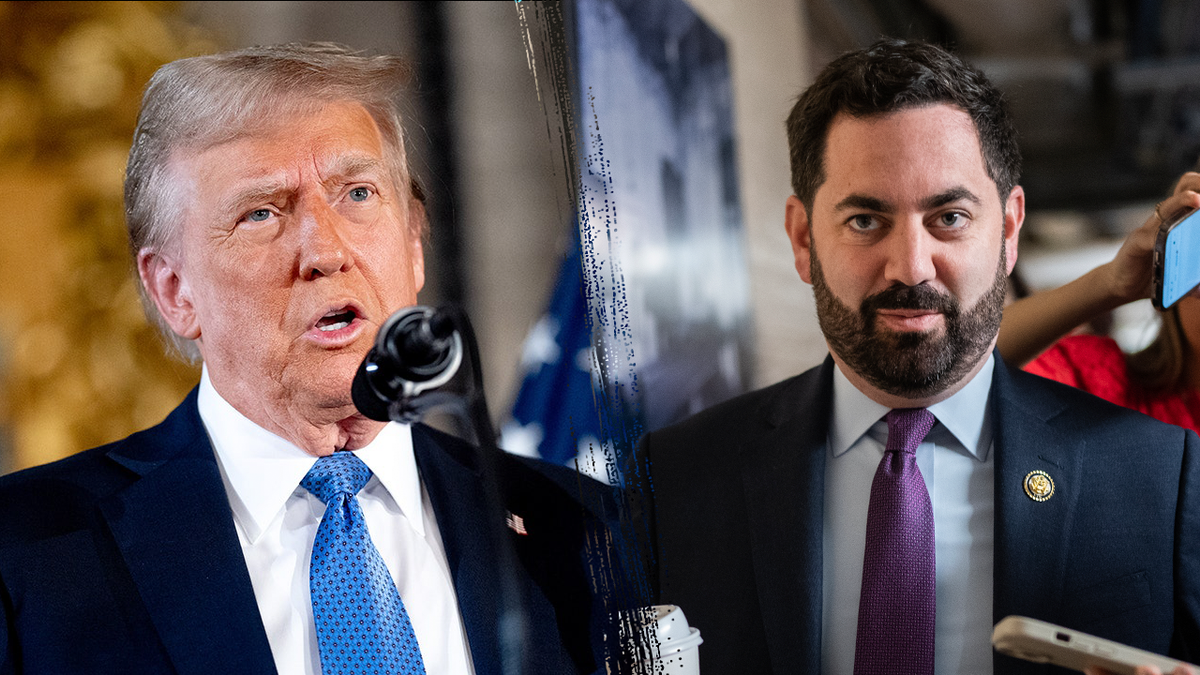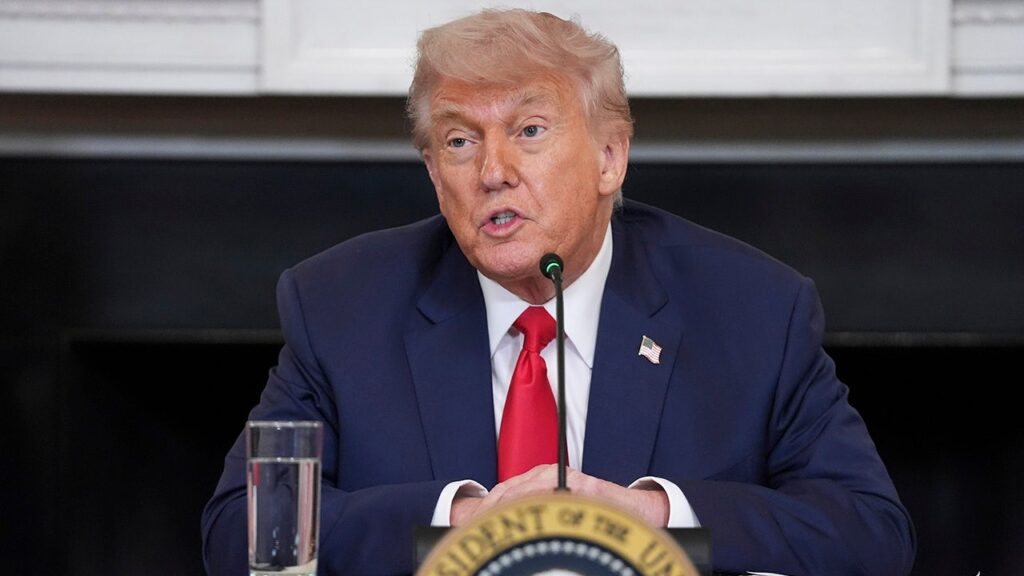NEWYou can now listen to Fox News articles!
A Senate panel charged with some of the most hot-button portions of President Donald Trump’s “big, beautiful bill” unveiled its portion of the gargantuan package on Monday.
The Senate Finance Committee, which has jurisdiction over tax policy, Medicaid and a slew of other items baked into the House GOP’s version of the bill, released its text as Republicans sprint to finish work on the president’s bill ahead of a self-imposed July 4 deadline.
TRUMP’S ‘BIG, BEAUTIFUL BILL’ CRACKS DOWN ON BIDEN’S STUDENT LOAN ‘SCHEME,’ TOP REPUBLICAN SAYS
The committee, chaired by Sen. Mike Crapo, R-Idaho, walked a tightrope with the legislation, given the push and pull surrounding divisive cuts to Medicaid, an increase to the state and local tax (SALT) deduction cap and other provisions in the House’s version of the bill.
Crapo lauded the bill in a statement and noted that it made the president’s 2017 Tax Cuts and Jobs Act permanent, slashed “Green New Deal” spending and targeted “waste, fraud and abuse in spending programs while preserving and protecting them for the most vulnerable.”
“I look forward to continued coordination with our colleagues in the House and the Administration to deliver President Trump’s bold economic agenda for the American people as quickly as possible,” he said.
While House Speaker Mike Johnson, R-La., pleaded with Senate leaders to change the bill as little as possible after narrowly passing the bill in the House, particularly on the compromises he reached on SALT and Medicaid, the Senate has vowed to leave its imprint on the package.
‘FULLY JUSTIFIED’: GRAHAM PLOWS AHEAD WITH TRUMP BORDER FUNDING DESPITE PAUL’S OBJECTIONS

Still, the Senate’s offering tweaked or outright changed some of the House’s provisions across the tax and health care policy landscape.
One of the thorniest issues in the House was the SALT cap hike, and blue-state Republicans vowed to vote against the bill unless their demands for a sizable increase were met.
The Senate’s offering drastically undercut the House GOP’s negotiated cap, instead permanently extending the current $10,000 deduction cap starting at the end of this year. However, tax writers view the modified cap change as more of a placeholder number while deliberations continue.
But Republicans from New York and California have already come out in force against the proposed change and contended that lowering the cap at all was non-negotiable.
“Instead of undermining the deal already in place and putting the entire bill at risk, the Senate should work with us to keep our promise of historic tax relief and deliver on our Republican agenda,” SALT Caucus co-chairs Reps. Young Kim, R-Calif., and Andrew Garbarino, R-N.Y., said in a joint statement to Fox News Digital.
BLUE STATE REPUBLICANS THREATEN REVOLT AGAINST TRUMP’S ‘BIG, BEAUTIFUL BILL’ IF SENATE CHANGES KEY TAX RULE

Another stark departure in the Senate’s healthcare language is Medicaid. Despite a cohort of Republicans warning to avoid deeper cuts that could lead to people being booted from their healthcare or negative effects on rural hospitals, lawmakers on the panel appear to have further dug in on slashes to the program.
For example, the Senate’s bill proposed halting an increase to the provider tax rate, or the amount that state Medicaid programs pay to healthcare providers on behalf of Medicaid beneficiaries, for non-Affordable Care Act expansion states, and lowering the rate in expansion states annually until it hits 3.5 percent. The House version just paused the increase.
The Senate’s offering also lowered the House’s proposed maximum Child Tax Credit from $2,500 to $2,200 while making the credit permanent. The House’s bill offered the increased credit until 2029, at which point it would revert to $2,000.
And on green energy tax credits, including those for electric vehicles, green energy upgrades to homes and others, the Senate offered more flexibility with their rollback timelines of Biden-era green energy subsidies ushered in by the Inflation Reduction Act.
The House version moved up the expiration date for many credits to the end of this year, while the Senate’s version tweaked the language in some places to allow for 90- and 180-day windows after the bill’s enactment. In some cases, the credits were given an entire year before they were slated to expire.
Notably, the committee’s legislation would also increase the debt limit to $5 trillion, a $1 trillion hike over the House’s offering. The inclusion of a debt limit hike has been a sore subject for Sen. Rand Paul, R-Ky., who has argued that he would prefer to vote on the debt limit separately.
Part of the impetus to advance the Senate’s version of the “big, beautiful bill,” however, is to beat the debt guillotine hanging over lawmakers’ heads. The Treasury Department has forecast that Congress has until August to increase the debt limit.
Fox News Digital’s Liz Elkind contributed to this report.
Read the full article here
